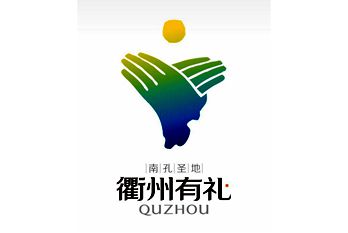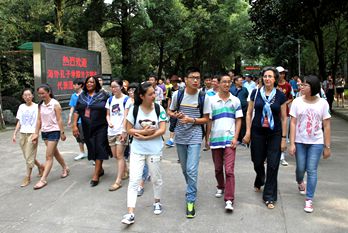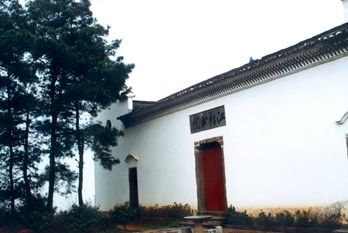Beauty economy, Happiness industry

Quzhou ramps up efforts to develop a "beauty" economy and "happiness" industry. [Photo/WeChat account: quzhoufb]
Offices of the municipal Party committee and municipal government in Quzhou, East China's Zhejiang province, recently issued policies to develop a "beauty" economy and "happiness" industry.
The policies state that Quzhou will develop its city brand, construct a scenic belt, and nurture a new group of industries.
The city will continue promoting its city brand "Home of Southern Confucianism, Model City of Courtesy" and create more subsidiary brands related to local culture, festivals, sports events, entertainment, and health care.
The scenic belt is meant to showcase the city's happiness industry, and will extend 280 km and cover an area of 1,000 square kilometers. The local government plans to build it into a model for China's beauty economy.
Quzhou will focus on "listen to good music, enjoy scenic views, taste delicious food and have a good time in Quzhou" to develop a beauty economy and happiness industry cluster worth 100 billion yuan ($14.38 billion) by 2022. Its goal is for its happiness industry to account for more than 20 percent of its GDP and become its strongest industry.
The policies also specify 10 new projects related to the beauty economy and happiness industry.
"Courtesy" is expected to become a trademark of Quzhou within the next two to three years.
A Confucian culture tourism zone will also be constructed in accordance with China's standards of 5A-level scenic spots. It will include Confucianism houses, a Temple of Confucius, a Confucian Culture Park, and the Quzhou Municipal Museum.
The local government plans to spend three years developing its Quzhou Confucian Culture Industrial Park into a model for national culture industrial parks.
An international resort area and an education and research center for Chinese classics will also be established in Lanke Mountain, the birthplace of Weiqi (or I-go), where numerous I-go events are held every year.
The natural environment, historic sites, and intangible cultural heritages along the city's Qiantangjiang River will be preserved, and entertainment facilities will be constructed there as well.
Centers for fitness, reading, entertainment, and elderly care will also be built nearby to give Quzhou residents convenient access to many types of services.
By the end of 2020, a total of 49 minority villages and more than half of all other villages in Quzhou are projected to become A-level scenic areas, and by 2020, the number of such villages is expected to exceed 1,000.
Digital administrative service applications in Quzhou will be connected, including the municipal administration center, municipal administrative service center, the "258" start-up industrial park, and the Qu Times Innovation Building, to offer more convenient services to businessmen.
The local government will also build a large culture and sports center, a Tongshanyuan resort area, and a national sports park in rural areas.

 City brand logo - fist-and-palm salute
City brand logo - fist-and-palm salute Confucianism on campus
Confucianism on campus The culture of the academy
The culture of the academy